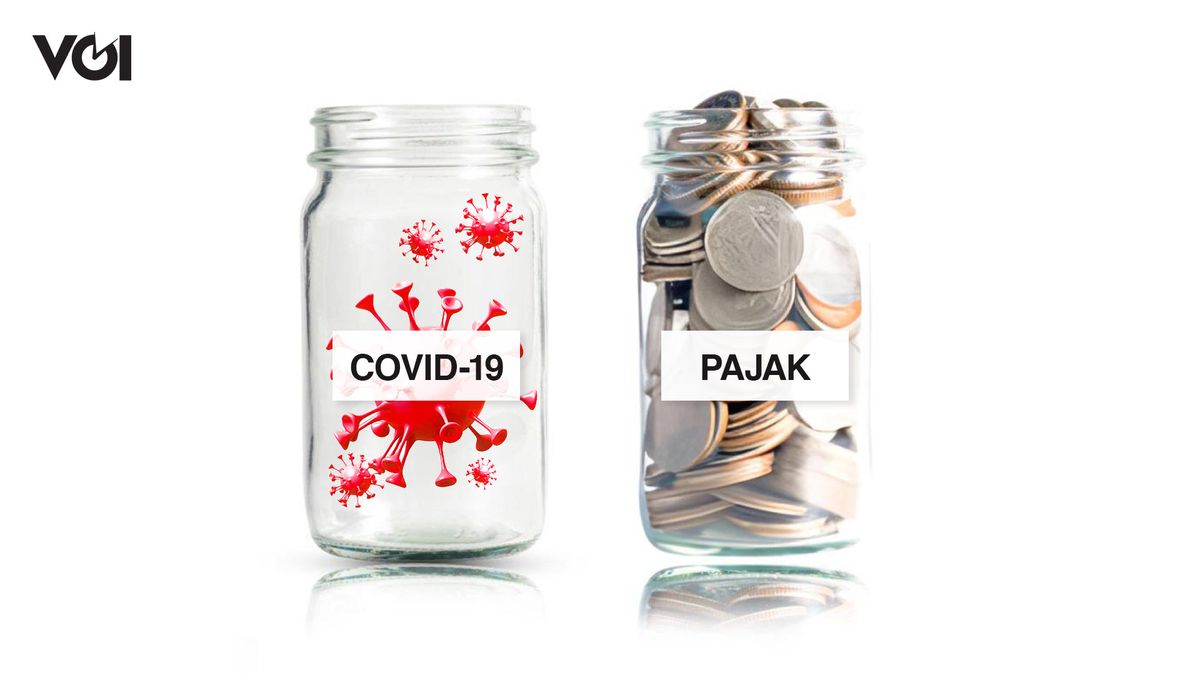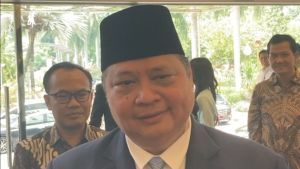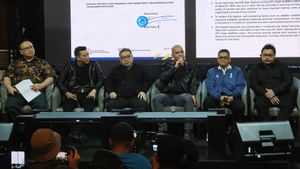JAKARTA - Entertainment venue entrepreneurs have recently been restless following the provisions of a new law that stipulates an increase in the Specific Goods and Services Tax (PBJT) by 40% to 75%. This provision is in line with the enactment of Law No. 1 of 2022 concerning Financial Relations between the Central Government and the Regional Government. (HKPD) especially entertainment service taxes which include discotheque activities, karaoke, nightclubs, bars, and steam baths or spas. A number of regions have made Regional Regulations (Perda) as implementation of the law. The implementation of Regional Regulations will exist starting in 2024, as for example the DKI Regional Government has set a tax rate for entertainment venues, including karaoke as much as 40% of which the implementation will take effect on January 5, 2024. A number of regions may not have implemented it but as instructed by the government to implement the law within 2 years of its enactment, to provide socialization opportunities and wait for the issuance of its derivative regulations.
Responding to the enactment of the new regulation, the Executive Director of the Regional Autonomy Implementation Monitoring Committee (KPPOD) Arman Suparman admitted that sanctions with the new rules can be relied on to boost regional tax revenues, and make the regions more independent.
Because Arman sees that the law does not make fundamental changes related to the new rules. When compared to Law 28 of 2009 concerning Regional Taxes and Regional Retribution, the HKPD Law is included in the derivative regulation of PP Number 35/2023. The actual imposition of Tariffs and tax objects is still the same as Law Number 28 of 2009, there is only a slight addition in heavy equipment tax.
According to Arman, this rule only helps urban areas that have a lot of income sources, but not for suburban areas. What the central government needs to do is encourage investment by providing ease of doing business and fiscal incentives, to create regional independence.
Entertainment Businesses Need To Be Turned On Don't Turn It Off
According to the former Head of the Investment Coordinating Board (BKPM), Thomas Lembong assessed that the government's plan to increase entertainment taxes by at least 40 percent to 75 percent, something that is less rational, we hit sectors that actually provide a lot of jobs.
"The entertainment business should be a sector that needs to be revived. Because this business sector creates a lot of jobs." said Co-captain of the National Team for Winning Anies-Muhaimin.
SEE ALSO:
Tom is more creative if food and sweet drinks that trigger diabetes and obesity must be taxed. "But the things we want to grow, don't be taxed because it's disincentive," he said.
Meanwhile, Legal Practitioner JJ Amstrong Sembiring assessed that the increase in entertainment taxes by 40 -75 percent could kill businesses, aka many entertainment entrepreneurs, who went bankrupt completely.
"This will certainly have an impact on consumer visitors, eventually lazy and reluctant to come to entertainment venues because there is a very high tax," concluded Amstrong.
Rules Enforced And Sued
The enactment of Law no. 1 of 2022 may be coveted by most local governments in Indonesia. Considered a form of improvement and amendment to the previous law, besides that it is considered to have the opportunity to increase PAD and hope that derivative regulations will come out soon.
However, the implementation was met with resistance from businessmen who actually shouted with the birth of the new provision. Reactions to rejection of the enactment of the regulation include directly taking steps to file a judicial lawsuit against Law No. 1 of 2022 to the Constitutional Court as done, among entrepreneurs. Uap/SPA Health Service.
The lawsuit that has been submitted to the Constitutional Court with number 10/PUU/PAN.MK/AP3/01/2024, was filed, among others, by the General Chairperson of the Indonesian Husada Tirta Entrepreneurs Association, formerly known as the Indonesian SPA Association (ASPI) and from the Indonesian Therapist Spa Association, formerly known as the Indonesian Therapist SPA Association (ASTI).
The judicial review or judicial review lawsuit to the Constitutional Court (MK) is related to Article 55 paragraph 1 and Article 58 paragraph 2 in the Central and Regional Financial Relations Law (HKPD) which includes the SPA business as the object of the Tax on Certain Services (PBJT) which is subject to tax stipulation between 40%-75%. The determination of the tax amount is considered burdensome.
Chairman of the Association of Indonesian Therapists Spa Association, formerly known as the Indonesian Therapist SPA Association (ASTI), Mohammad Asyhadi, said that his party submitted Judicial Review to the Constitutional Court, there were two demands in addition to asking for a tax reduction, he also asked for spas to be removed from the entertainment activity category.
According to Asyhadi, the spa is a cultural product that has passed down from generation to generation as a category of therapy and health. He hopes that by leaving as part of entertainment, the imposition of taxes is not 40%-75%. But about 0-10 percent. According to him, the lawsuit was based on Law No. 1 of 2022 contradicts the 1945 Constitution. Including contradicting other laws such as the Tourism Law No. 10/ 2009 Law 6 of 11/2020 which includes spa as entertainment. And it does not involve stakeholders.
Mohammad Asyhadi and his friends at the association admitted that they had never been spoken to by the DPR. "Even though I am well known and like to be involved in government activities, so that the determination of the amount of tax without him knowing and discussing it between them", said the man who was called Didik to Voi.
According to Asyhadi, the Spa is actually in the health sector. There are two laws that regulate it, namely the Health Law and the Tourism Law, where the business is included in the Tourism object because humans are included in the health law. Not only that, he also explained that the objections of spa entrepreneurs related to his business fall into the entertainment category.
"Entering spas in entertainment offends Balinese people, meaning those who work in spas are considered entertainers. Because the definition of entertainment is something that is shown and can earn money. Meanwhile, SPA is closed and useful for the health of the human body," he said.
The English, Chinese, Japanese, Arabic, and French versions are automatically generated by the AI. So there may still be inaccuracies in translating, please always see Indonesian as our main language. (system supported by DigitalSiber.id)
















